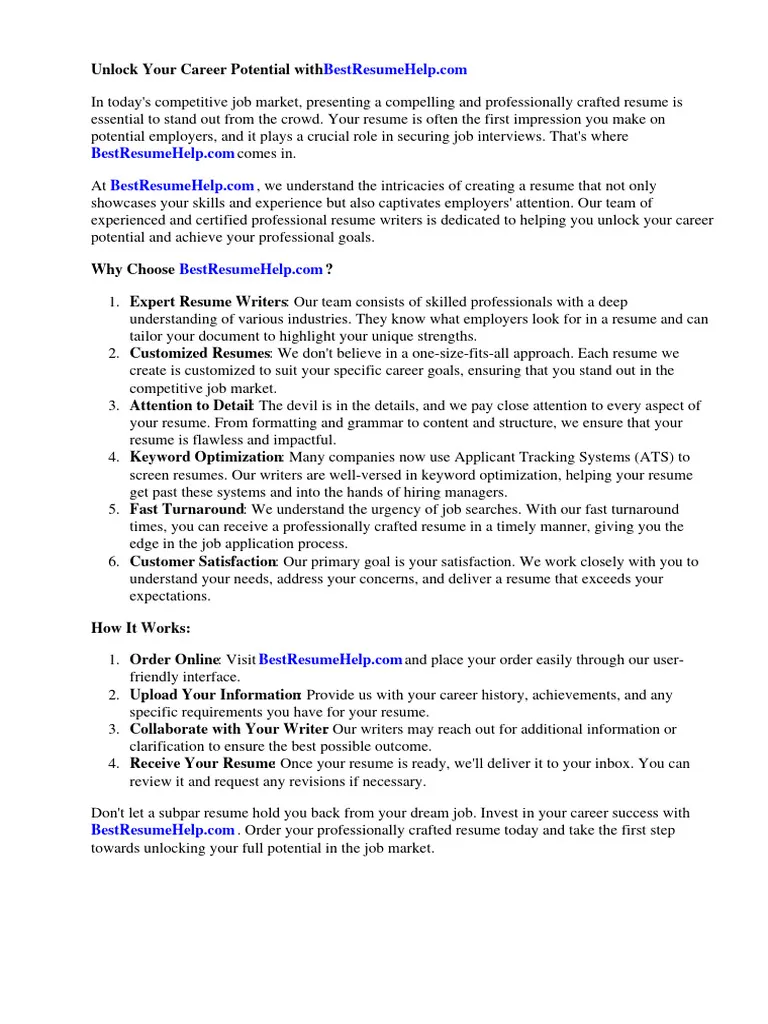Why a Strong Psychologist Cover Letter Matters
In the competitive field of psychology, a well-crafted cover letter is your first opportunity to make a lasting impression on potential employers. It serves as more than just a formality it’s a crucial tool that allows you to introduce yourself, highlight your key qualifications, and express your enthusiasm for the position. Think of it as your personal marketing document, designed to capture the reader’s attention and convince them that you’re the ideal candidate. Unlike a resume, which provides a static overview of your experience, a cover letter gives you the chance to tell your story, explain your motivations, and demonstrate how your skills align with the specific requirements of the job. A compelling cover letter can significantly increase your chances of securing an interview, ultimately leading you closer to your career goals. By investing time and effort in crafting a strong cover letter, you are investing in your future in psychology.
The Purpose of a Psychologist Cover Letter
The primary purpose of a psychologist cover letter is to introduce you to the hiring manager and provide a personalized context to your resume. It allows you to elaborate on your qualifications, skills, and experiences in a way that a resume alone cannot. This is your chance to showcase your personality, demonstrate your understanding of the role, and explain why you’re a perfect fit for the position and the organization. A well-written cover letter should highlight your key achievements, explain your career goals, and express your genuine interest in the specific opportunity. It also offers an opportunity to address any potential gaps or concerns in your resume, providing a holistic view of your candidacy. Ultimately, the cover letter serves as a bridge, connecting your past experiences with the future possibilities offered by the job, making it an essential component of your application package.
Key Elements to Include in Your Cover Letter
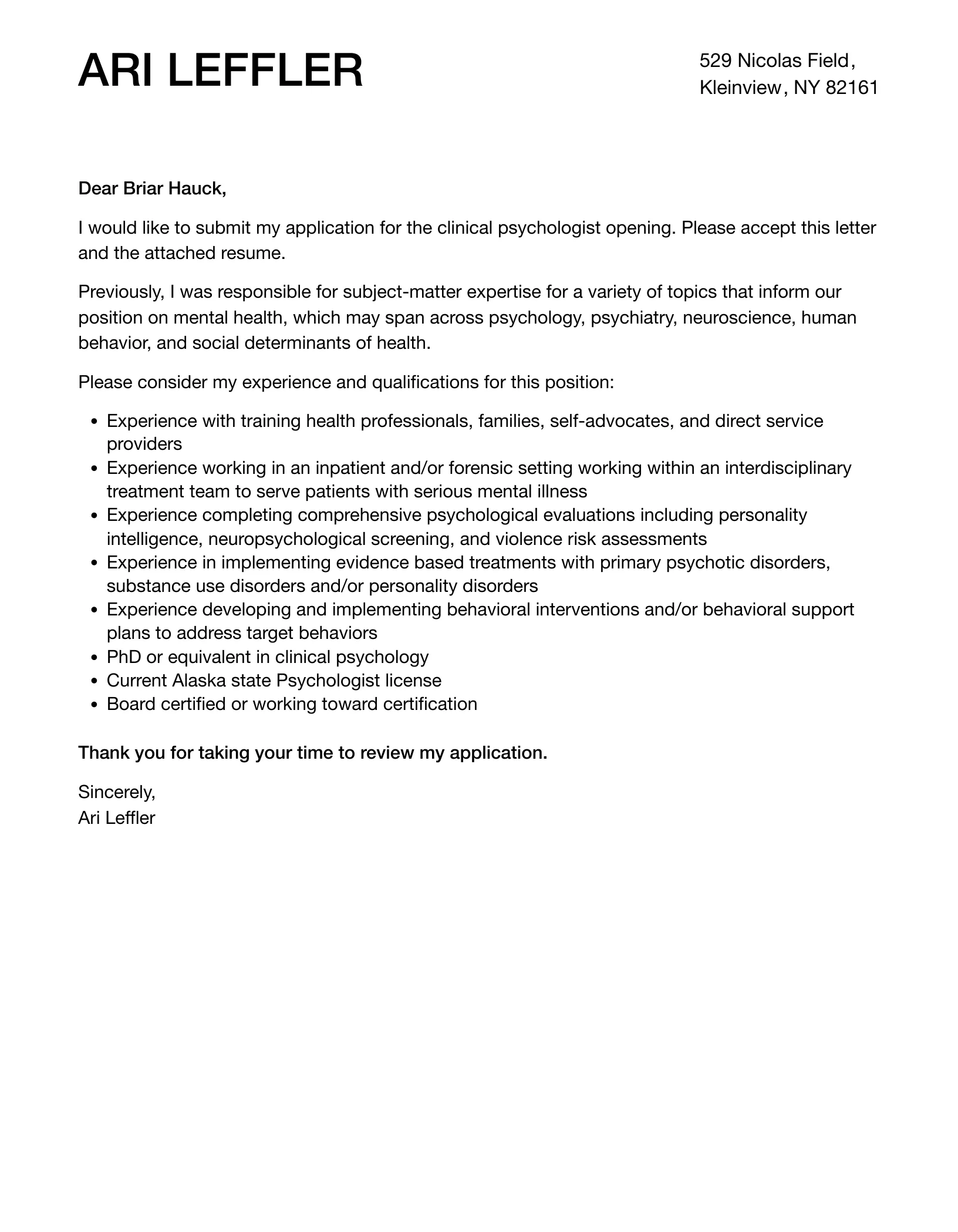
Several key elements are essential for a compelling psychologist cover letter. Firstly, your contact information, including your name, phone number, email, and optionally your LinkedIn profile, should be prominently displayed. Following this, a professional salutation, such as “Dear Dr. [Hiring Manager’s Name],” shows respect and attention to detail. The opening paragraph must grab the reader’s attention, clearly stating the position you’re applying for and how you learned about it. Next, the body of the letter should highlight your relevant skills and experience, tailoring it to the job description. Quantify your achievements whenever possible, using numbers and specific examples to demonstrate your impact. Show your understanding of the role and the organization’s mission, expressing your passion for psychology. Finally, the closing paragraph should reiterate your interest, thank the reader for their time, and include a call to action, such as requesting an interview. Proofread meticulously to avoid errors.
Contact Information and Salutation
Begin your cover letter with your contact information, placed at the top left or right corner. Include your full name, phone number, professional email address, and optionally, your LinkedIn profile URL. This allows the hiring manager to easily reach you. Following the contact information, address the hiring manager using a professional salutation. Whenever possible, find out the name of the hiring manager and address them directly, for example, “Dear Dr. Smith.” This shows that you’ve done your research and are paying attention to detail. If the hiring manager’s name isn’t available, use a general salutation such as “Dear Hiring Manager.” Avoid generic greetings like “To Whom It May Concern,” as they come across as impersonal. The salutation sets the tone for the entire letter, so make sure it’s respectful and professional.
Opening Paragraph Grab Their Attention
Your opening paragraph is crucial in capturing the hiring manager’s attention and setting the tone for the rest of your letter. Start by clearly stating the position you are applying for and where you saw the job posting. Then, immediately grab their attention by stating a compelling reason why you’re interested in the role or the organization. Highlight a key skill or achievement that aligns directly with the job requirements. For example, you might start by mentioning a specific project, a successful outcome, or a unique qualification. Avoid generic openings, such as simply stating that you’re writing to apply for the position. Instead, aim for an opening that is concise, enthusiastic, and directly relevant to the job. This initial paragraph should entice the reader to continue reading, making them eager to learn more about your qualifications and experience. A strong opening makes a significant impact on the overall effectiveness of your cover letter.
Highlighting Your Skills and Experience
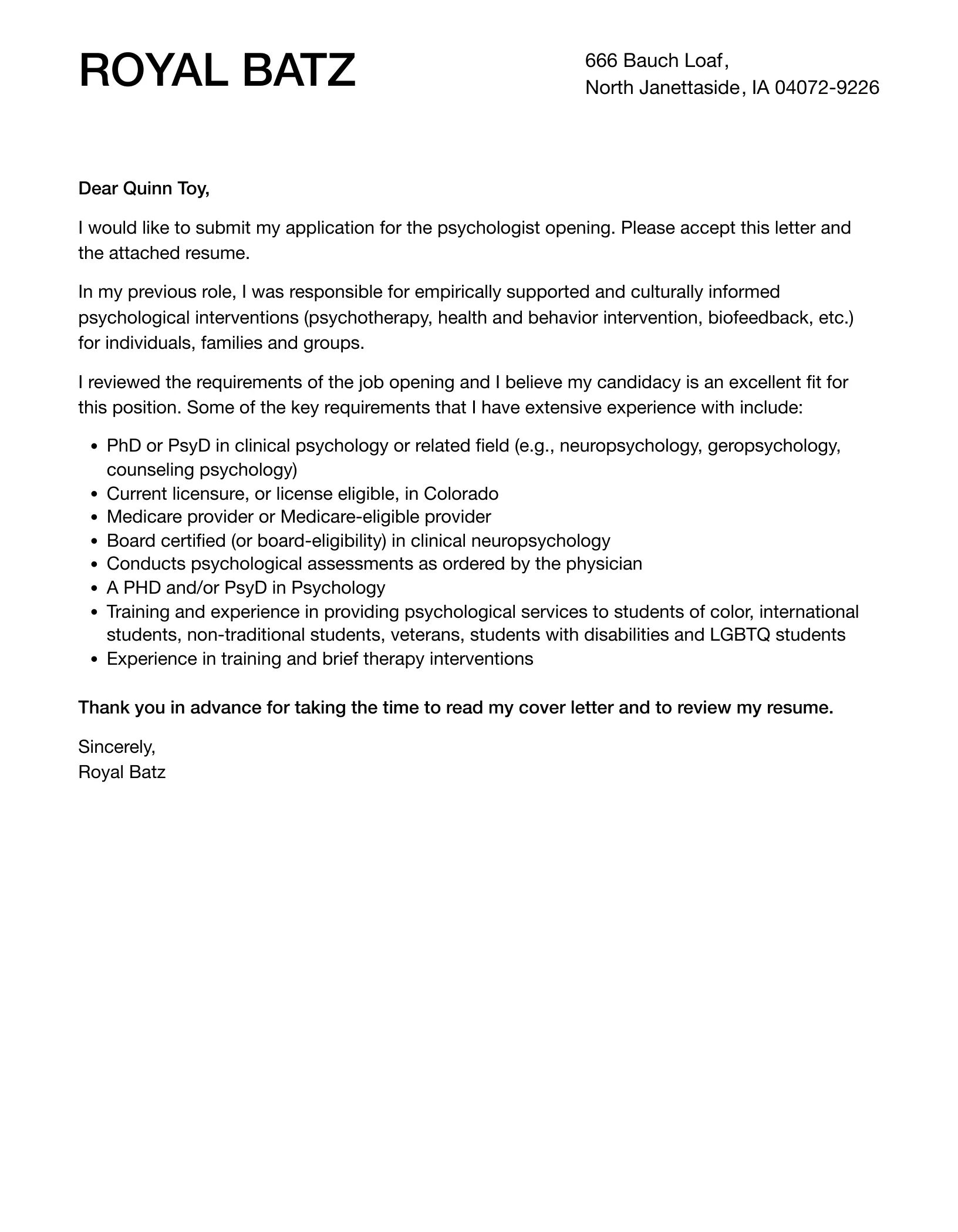
In the body of your cover letter, showcase your skills and experience, ensuring they directly align with the requirements outlined in the job description. Instead of simply listing your responsibilities, provide specific examples of your accomplishments and how you’ve utilized your skills in previous roles. Use action verbs to describe your achievements, such as “managed,” “developed,” “implemented,” or “assessed.” For each skill or experience you highlight, provide context and explain the impact you had in your previous roles. Consider using the STAR method Situation, Task, Action, Result to structure your examples, clearly showing the problem, the steps you took to solve it, and the outcome. Tailor your content to each job application by carefully reviewing the job description and emphasizing the skills and experiences most relevant to the position. This will demonstrate to the hiring manager that you understand the role and possess the necessary capabilities to excel.
Tailoring Your Cover Letter to the Job
One of the most important aspects of a successful cover letter is tailoring it to each job you apply for. Generic cover letters are easily identified and often discarded. Start by carefully reading the job description and identifying the key skills, qualifications, and experiences the employer is seeking. Then, adjust your cover letter to specifically address those requirements. Highlight your relevant experiences and skills, providing examples that demonstrate how you’ve met similar challenges or achieved comparable outcomes in the past. Use keywords from the job description throughout your cover letter, but make sure to do so naturally. Customize your letter to reflect your understanding of the organization’s mission, values, and the specific role. This attention to detail shows the hiring manager that you’ve invested time and effort into your application, making a strong impression. Demonstrating that you understand the role and the organization will significantly increase your chances of being selected for an interview.
Showcasing Relevant Qualifications
To showcase your relevant qualifications, focus on highlighting the specific education, certifications, licenses, and experiences that align with the job description. Mention your degrees, specializations, and any relevant coursework you have completed. If you have certifications or licenses, be sure to include them, along with the issuing organization and any relevant details. Provide specific examples of how you’ve applied your knowledge and skills in previous roles. For instance, describe projects, case studies, or research experiences that are relevant to the position. Clearly articulate your experience working with specific populations, therapeutic modalities, or assessment tools. When highlighting your qualifications, emphasize your strengths and demonstrate how you’ve met or exceeded expectations in past roles. Back up your claims with concrete examples and quantifiable results whenever possible. This will give the hiring manager a clear understanding of your capabilities and how they can benefit the organization.
Quantifying Your Achievements
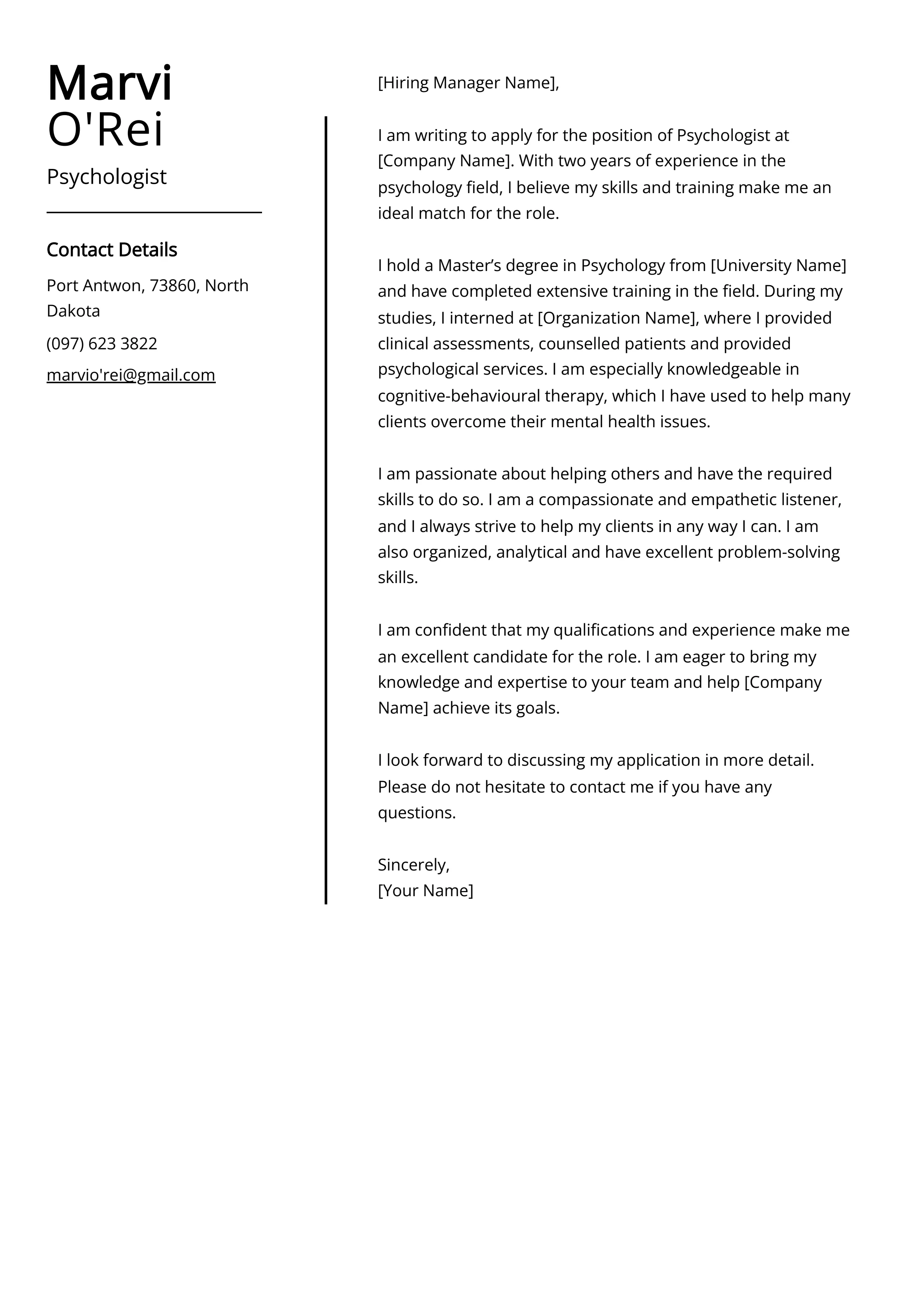
Quantifying your achievements is a powerful way to make your cover letter more impactful and demonstrate the value you can bring to the organization. Instead of simply stating what you did, use numbers, percentages, and specific data to illustrate your successes. For example, if you improved patient outcomes, mention the percentage of improvement or the specific metrics that were positively affected. If you managed a project, specify the budget, timeline, and any cost savings or efficiency gains achieved. When describing your accomplishments, use concrete numbers to give the reader a clear understanding of your impact. Quantifying your achievements provides evidence of your skills and abilities, making your cover letter more persuasive. This objective information allows the hiring manager to quickly assess your performance and potential contributions to the role. By quantifying your achievements, you create a more compelling narrative that sets you apart from other candidates.
Demonstrating Your Understanding of the Role
Demonstrate your understanding of the role by thoroughly researching the position and the organization before writing your cover letter. Carefully review the job description and identify the key responsibilities, requirements, and expectations. In your cover letter, address these aspects directly, showing how your skills and experiences align with the role. Explain how you understand the challenges and opportunities associated with the position. Research the organization’s mission, values, and goals to understand their priorities and culture. Use this information to tailor your letter, expressing your alignment with the organization’s vision. Show that you’ve considered the specific needs of the role and how you can contribute to the team’s success. You can reference the company’s recent initiatives, projects, or publications to show you’ve done your homework. Your understanding of the role demonstrates your genuine interest and preparedness, making your application more compelling.
Expressing Your Passion for Psychology
Expressing your passion for psychology is essential in a cover letter. Share your genuine enthusiasm for the field and the specific area of psychology related to the job. Explain what motivates you and what drives you to excel in your career. Describe your commitment to providing excellent care, conducting meaningful research, or contributing to the field in a meaningful way. Mention specific aspects of the role or organization that excite you, demonstrating your understanding of their mission and values. Talk about your professional goals and how the position aligns with your career aspirations. Your passion will make you stand out and demonstrate that you are invested in the role, making you a more attractive candidate. Share why you chose psychology and what you love about it. Your enthusiasm can significantly influence the hiring manager and set you apart from less passionate applicants.
Closing Your Cover Letter
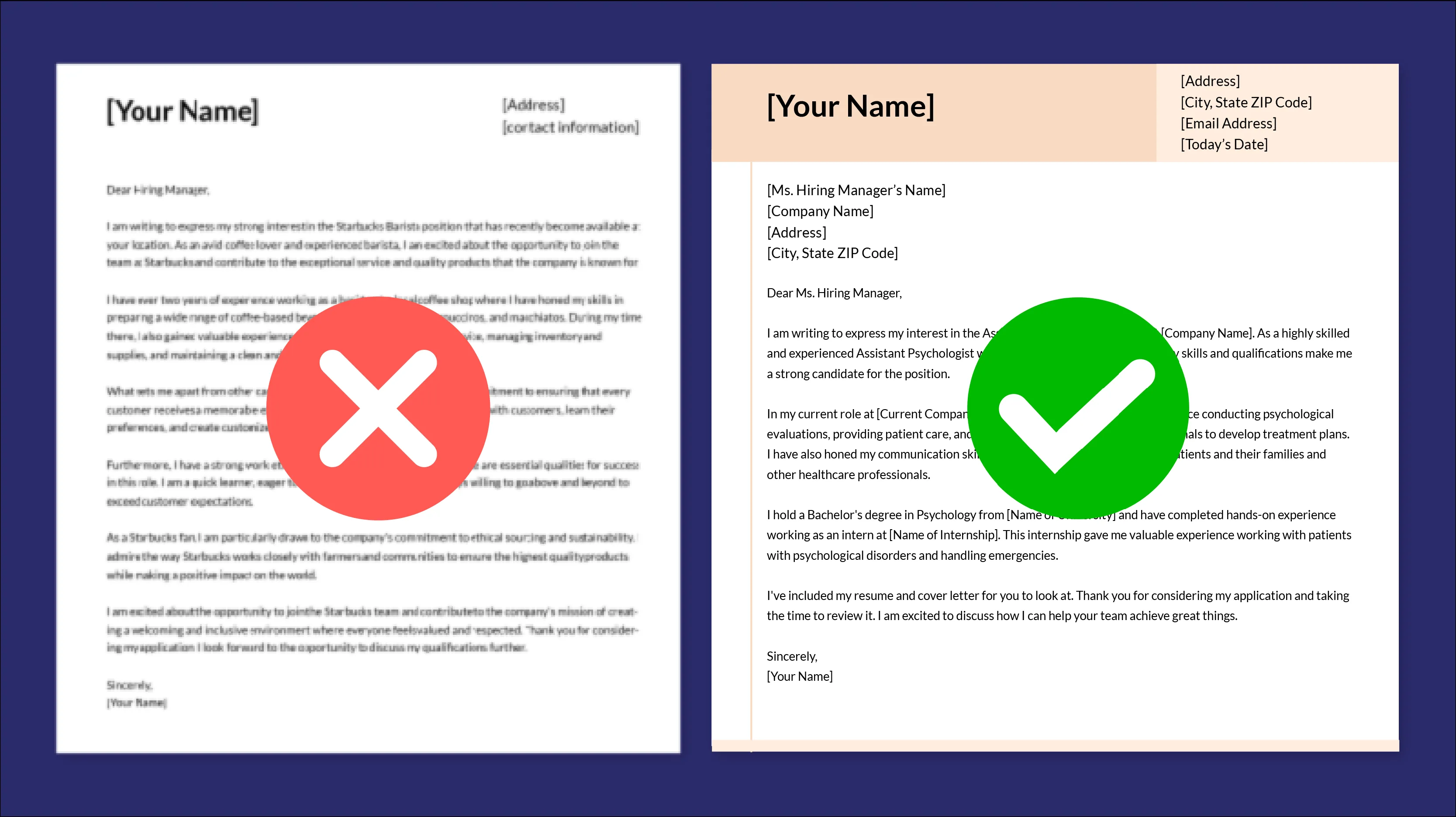
Your closing paragraph should reiterate your interest in the position, thank the hiring manager for their time and consideration, and include a clear call to action. Express your enthusiasm for the opportunity to learn more about the role and the organization. Reiterate your key qualifications and skills that align with the job requirements. Thank the hiring manager for their time and the opportunity to be considered. Include a call to action, such as requesting an interview or expressing your willingness to discuss your qualifications further. Provide your contact information again, making it easy for the hiring manager to reach you. End your cover letter with a professional closing, such as “Sincerely,” or “Respectfully,”, followed by your full name. The closing paragraph is your final chance to make a positive impression, so ensure it is concise, professional, and enthusiastic.
Formatting and Proofreading
Formatting and proofreading are critical for a professional cover letter. Use a clean and easy-to-read font, such as Times New Roman, Arial, or Calibri, with a font size between 10 and 12 points. Maintain consistent formatting throughout your letter, including the same font, spacing, and margins. Use standard business letter format, with your contact information at the top and the hiring manager’s information below. Use a professional tone and avoid slang or jargon. Proofread your cover letter carefully for any grammatical errors, spelling mistakes, or typos. Read the letter aloud to catch any awkward phrasing or inconsistencies. Ask a friend, family member, or career counselor to review your letter for clarity, accuracy, and overall effectiveness. Proofreading is vital for ensuring your letter presents you in the best possible light. Even minor errors can undermine your credibility, so take the time to ensure your cover letter is polished and error-free.
Common Mistakes to Avoid
Several common mistakes can undermine the effectiveness of your psychologist cover letter. Avoid using generic templates without tailoring them to the specific job description. Don’t simply repeat information from your resume; use your cover letter to elaborate on your skills and experiences. Avoid typos, grammatical errors, and spelling mistakes. Proofread carefully before submitting your application. Don’t write a cover letter that is too long. Aim for a concise and focused letter, typically one page in length. Avoid being overly casual or informal in your tone. Maintain a professional and respectful demeanor. Avoid negative language or criticizing past employers. Focus on your strengths and accomplishments. Don’t provide information that is irrelevant to the job. Keep your letter focused on the requirements and your qualifications. By avoiding these common mistakes, you can ensure that your cover letter makes a strong positive impression.
Psychologist Cover Letter Example Templates
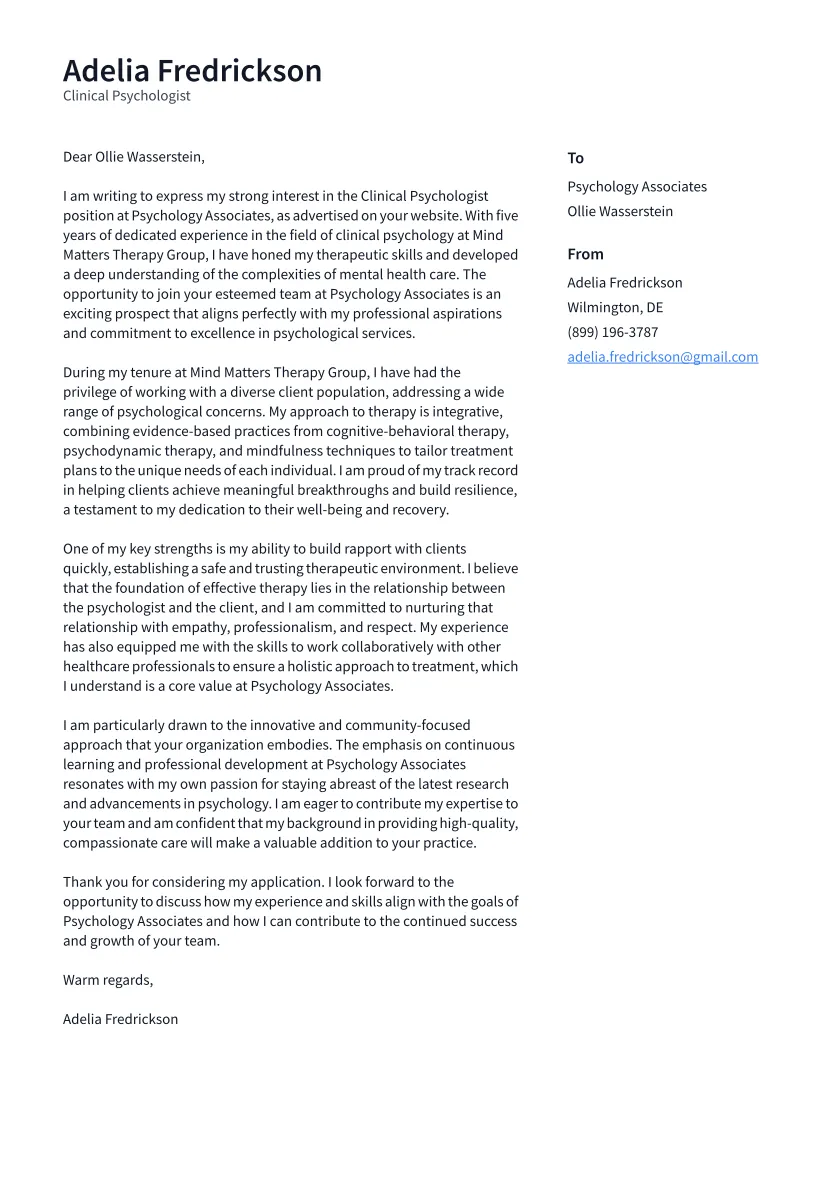
Using cover letter templates can be a helpful starting point, but be sure to customize them to fit your specific experiences and the job requirements. Several resources offer excellent psychologist cover letter templates, including career websites, job boards, and professional organizations. These templates can provide a structured format and suggest key elements to include. However, do not simply copy a template. Tailor it to your experience, skills, and the job description. Replace the generic details with your information. When using a template, ensure that it aligns with the job you are applying for and showcases your qualifications effectively. Examples of professional cover letter templates can be found online, along with advice on how to best modify them. Customize templates to reflect your unique skills and expertise, making your cover letter stand out from the crowd. A well-customized cover letter will enhance your application and increase your chances of securing an interview.
